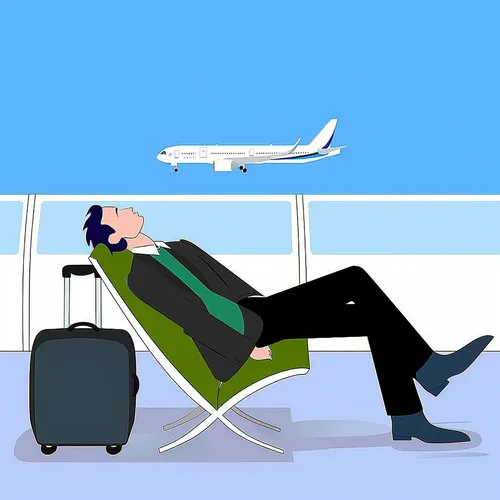Have you ever felt completely wiped out after a long flight? That’s jet lag hitting you hard. Jet lag occurs when airline travel across multiple time zones disrupts your circadian rhythm – your body’s internal 24-hour clock.
Jet lag can last anywhere from a few days to a couple weeks depending on the direction of travel, number of time zones crossed, length of flight, and your personal biology. The more time zones you cross, the worse it is. And for most people, heading east tends to cause more severe jet lag than flying west.
Symptoms to Watch For
Some of the most common symptoms of jet lag include:
- Disturbed sleep – insomnia or excessive sleepiness at the wrong times
- General fatigue and malaise
- Cognitive impairments like forgetfulness or difficulty concentrating
- Indigestion and stomach upset
- Mood changes like irritability or low motivation
These unpleasant effects of jet lag can really put a damper on your vacation or business trip if left unchecked.
Realigning Your Body Clock
The key to bouncing back quickly from jet lag is resetting that internal body clock of yours to match the day/night cycle at your destination. There are a few ways to make that happen faster:
Timed light exposure – Sunlight is the strongest signal to your brain that it’s daytime. Getting outside during daylight when you arrive can help adjust your circadian rhythm. But avoid too much light at night.
Melatonin supplements – This sleep hormone shifs your cycle earlier or later depending on when it’s taken. Low dose melatonin before bedtime in your new time zone may speed up realignment.
Gradual pre-trip adjustments – For a big time zone change, start shifting your sleep schedule in advance of your flight. It’ll give your body a head start on adjusting.
Apps, sleep doctors, and travel clinics can provide personalized jet lag avoidance plans based on your itinerary and needs.
Minimizing the Misery
While you work on resetting your body clock, you can also take steps to keep jet lag symptoms in check:
- Stay hydrated and avoid heavy cabin meals
- Bring earplugs and sleep masks for better rest
- Limit alcohol and caffeine intake
- Take brief naps if needed, but not too late
- Get moving with exercise if possible
- Leave plenty of cushion in your itinerary just in case
The better rested you are overall, the less brutal jet lag will be. Prioritize sleep leading up your departure, during the flight, and once you arrive.
The Verdict on Sleeping Pills
Prescription sleep medications and even some over-the-counter sleep aids do not correct the underlying circadian misalignment causing jet lag. However, they may provide relief if sleep disruptions from jet lag become extreme. As always, consult your doctor before taking any new medications.
Embrace the Jet Lag Fix
Dealing with jet lag takes some effort, but a little planning can help you avoid that travel-worn feeling. Stay ahead of it by preparing your body clock for the time zone you’re visiting. And be ready with coping strategies in case it still hits you hard.
With the right remedies, you’ll be adjusting to the new time zone and enjoying your trip again in no time! Safe travels.
Photo “Jet Lag” by Anthony Cunningham for Zoom Health
Zoom Health is a leading UK supplier of Home Health Tests and Earplugs





